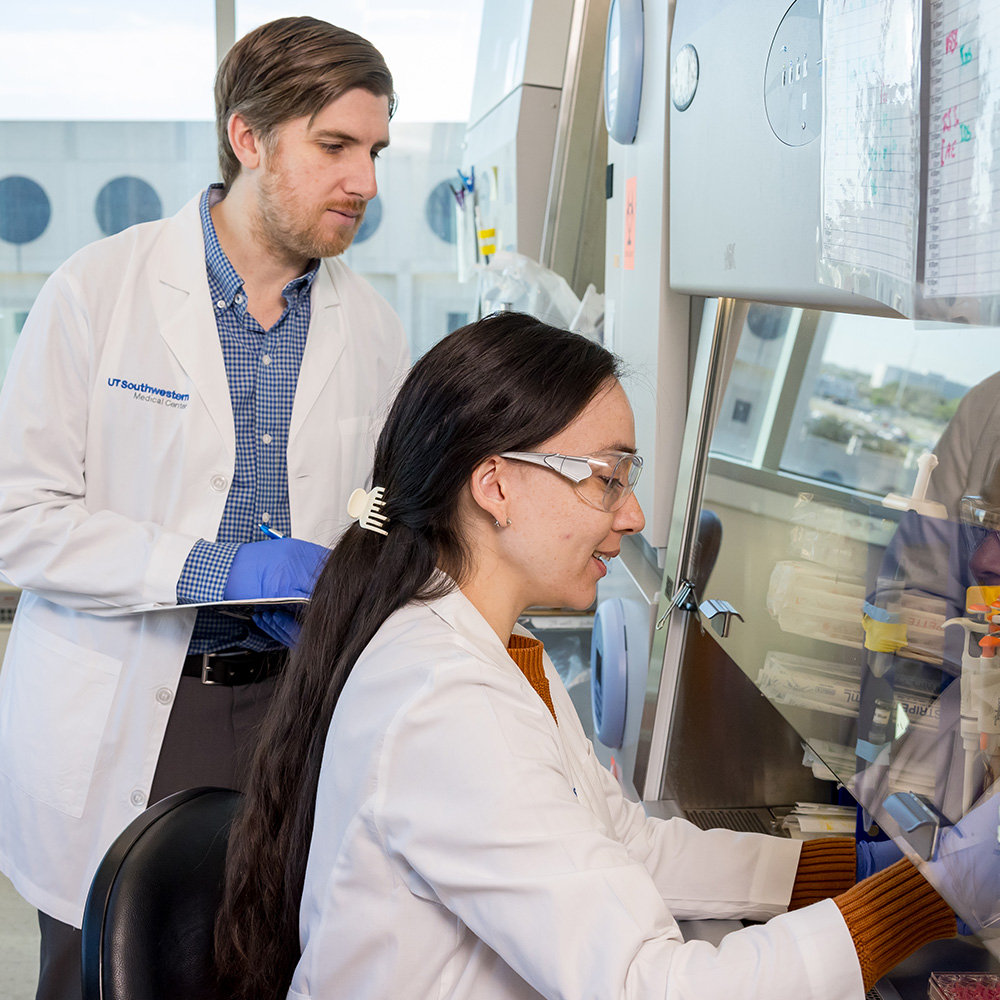CPRIT funding to expand genetic screening program in underserved areas
By Lori Sundeen Soderbergh

Genetic screening services for rural and underserved populations will expand from six to 22 counties in North Texas under a $1.5 million grant to UT Southwestern Medical Center from the Cancer Prevention and Research Institute of Texas (CPRIT).
The goal is to identify patients with Hereditary Breast-Ovarian Cancer (HBOC) and Lynch syndrome, two of the most commonly inherited cancer predisposition syndromes. For people carrying these mutations, the lifetime risk for breast, ovarian, colorectal, and uterine cancer is as high as 85 percent.
“Overall, about 10 percent of cancer diagnoses are hereditary,” said Linda Robinson, Assistant Director of Clinical Cancer Genetics at UT Southwestern. “The power of genetic testing is that we can lessen the amount of treatment for these people by finding the cancer early, and for some patients we can prevent it from happening altogether.”
Cancer Genetic Services for Rural and Underserved Populations in Texas is part of the Genetics Department at the Harold C. Simmons Comprehensive Cancer Center, in partnership with Parkland Memorial Hospital in Dallas, and the Moncrief Cancer Institute and JPS Health Network in Fort Worth. The cost of the genetic evaluation and testing is covered through the CPRIT grant and other external funding sources.
“This support from CPRIT is crucial in enabling us to offer genetic counseling to populations who have never received these services,” said Dr. James Willson, Associate Dean of Oncology Programs, Director of the Simmons Cancer Center, and Professor of Internal Medicine.
The principal investigator on the grant is Dr. Keith Argenbright, Director of the Moncrief Cancer Institute, and Associate Professor at the Simmons Cancer Center and in the Department of Clinical Science at UT Southwestern.
“We now have the ability to connect with patients through telemedicine, a high-tech communications system linking patients in outlying counties with our genetic specialists,” said Dr. Argenbright. “With this new grant, we are building on the success of a similar program CPRIT funded three years ago, which brought state-of-the art genetic testing closer to home for our patients.”
The new grant funds the program for an additional three years. The initial $1.6 million CPRIT grant from 2011 included Tarrant, Dallas, Wise, Hood, Johnson, and Parker counties, a population of 3,511,623. The expansion includes a population increase of 1,156,449 and covers an estimated additional 13,480 square miles, more than double the size of Massachusetts. In Texas, 43 percent of the population is uninsured or underinsured. CPRIT funding allows for genetic services for patients who have never had access to these services before.
In the first 20 months, more than 61,000 underserved women were screened for HBOC risk, and more than 500 underserved patients with colon and uterine cancer were tested for Lynch syndrome. About one in 300 people have Lynch syndrome, which is 3 percent of all colon and uterine cancer patients. Lynch syndrome patients have nearly an 80 percent risk of a cancer diagnosis as a result – colon, uterine or ovarian. “Patients with Lynch syndrome who follow the recommended increased surveillance can live 26 years longer,” said Mrs. Robinson.
The additional counties served by UT Southwestern’s expanded genetics program include: Bosque, Clay, Comanche, Cooke, Denton, Ellis, Erath, Hamilton, Hill, Jack, Montague, Navarro, Palo Pinto, Somervell, and Young County. Genetic services are new to much of the service area. “In these counties, no one will need to drive more than an hour to receive genetic counseling,” said Mrs. Robinson. For information, call 214-645-2563.
###
Dr. Willson holds the Lisa K. Simmons Distinguished Chair in Comprehensive Oncology.




